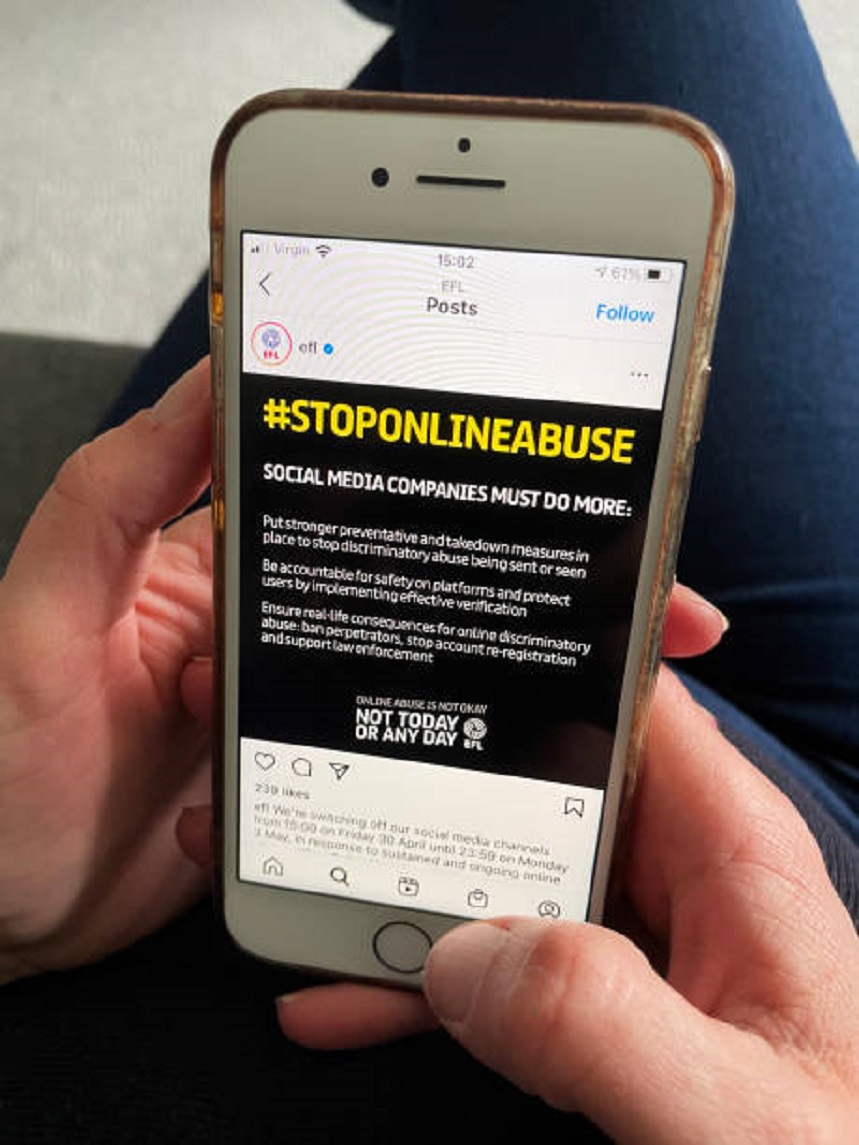Technology
Awareness and Prevention of the Perils of Internet Abuse and Addiction in the Last Days

By Rotimi Onadipe
Internet abuse and internet addiction are strong weapons that the enemy known as Satan had planned to use to steal, kill and destroy the glorious future of many people in these last days.
It is no longer news in our society that we have multiple cases of children of the same parents having sex with each other, people having sex with animals, rape cases involving minors have also increased tremendously.
It is very sad that youths these days are desperate to become billionaires even while they are still in primary, secondary or tertiary institutions because they believe this can be achieved through the internet. Internet abuse, particularly internet fraud is now the order of the day among youths in today’s technology age.
What is internet abuse?
Internet abuse can be defined as improper use of the internet. e.g. internet fraud, sexting, online impersonation, cyberbullying, identity theft etc
Internet addiction refers to excessive use of the internet that is detrimental to the user’s daily obligations. e.g. online gaming or gambling addiction, cybersex or pornography addiction, online relationship addiction, compulsive web surfing etc.
Internet abuse or internet addiction has no respect for age, status or academic qualification. No matter how highly placed you are, you can be a victim of internet abuse or internet addiction and this may have negative effects on almost all aspects of your life.
Internet abuse or addiction will take you longer than you want to stay and cost you more than you want to pay.
Who is an internet addict?
How you feel when you are not online answers the question.
Practical and sensitive questions about internet abuse and addiction:
Your answers to these questions will give you a clear picture of an internet addict.
Do you spend more time than you really intend on the internet?
Do you feel restless or moody when you can’t go online?
How do you feel when your phone battery is down for some time?
How do you react when you misplace your mobile phone?
Can you do this without checking your phone or social media account in a day?
What exactly do you do online and does it add any value to your life in any way?
Do you spend as much time on the word of God the same way you do on social networking sites?
Does your internet usage serve as an escape from problems or relief from a bad mood?
Finally, have you made repeated but unsuccessful attempts to stop or control your internet use?
Your answer to the above questions will help you to know if you are addicted to the internet or not.
How to overcome the danger of internet abuse and addiction in these last days:
- Keep your heart pure. Everything we do in life originates from the heart. The word of God in Proverb 4:23 says “Keep your heart with all diligence; for out of it are the issues of life”. In order to keep your heart pure, the first step is to surrender your heart to God sincerely.
- Spend more time to pray on your heart and dedicate it to God every day because that is the source of everything you do in life.
- You must be conscious of the fact that internet abuse and internet addiction are strong weapons that Satan is using in these last days to steal, kill, destroy the future of people and prevent them from getting to heaven.
- Make sure you always observe your quiet time before you check your phone or social media account every day.
- You must be informed that there are different kinds of people with different missions on the internet. i.e. Some people have good intentions while others are searching for victims.
- You should have a definite time for your internet usage every day and write all you want to do in a paper. i.e. If it is one hour, make sure you don’t exceed one hour and don’t do anything different from what you wrote down. It is more advisable to let all your contacts know that you have a definite time for internet usage.
- Always make a record of what you have benefited from your online activities.
- Reduce the number of your telephone lines and social media accounts.
- Don’t be desperate. Make sure you are contented with what you have.
- When you cannot help yourself, contact a counsellor before it is too late.
Technology
Leticia Otomewo Becomes Secure Electronic Technology’s Acting Secretary

By Aduragbemi Omiyale
One of the players in the Nigerian gaming industry, Secure Electronic Technology (SET) Plc, has appointed Ms Leticia Otomewo as its acting secretary.
This followed the expiration of the company’s service contract with the former occupier of the seat, Ms Irene Attoe, on January 31, 2026.
A statement to the Nigerian Exchange (NGX) Limited on Thursday said Ms Otomewo would remain the organisation’s scribe in an acting capacity, pending the ratification and appointment of a substantive company secretary at the next board meeting.
She was described in the notice signed by the Managing Director of the firm, Mr Oyeyemi Olusoji, as “a results-driven executive with 22 years of experience in driving business growth, leading high-performing teams, and delivering innovative solutions.”
The acting secretary is also said to be “a collaborative leader with a passion for mentoring and developing talent.”
“The company assures the investing public that all Company Secretariat responsibilities and regulatory obligations will continue to be discharged in full compliance with the Companies and Allied Matters Act, applicable regulations, and the Nigerian Exchange Limited Listing Rules,” the disclosure assured.
Meanwhile, the board thanked Ms Attoe “for professionalism and contributions to the Company during the period of her engagement and wishes her well in her future endeavours.”
Technology
Russia Blocks WhatsApp Messaging Service

By Adedapo Adesanya
The Russian government on Thursday confirmed it has blocked the WhatsApp messaging service, as it moves to further control information flow in the country.
It urged Russians to use a new state-backed platform called Max instead of the Meta-owned service.
WhatsApp issued a statement earlier saying Russia had attempted to “fully block” its messaging service in the country to force people toward Max, which it described as a “surveillance app.”
“Today the Russian government attempted to fully block WhatsApp in an effort to drive people to a state-owned surveillance app,” WhatsApp posted on social media platform X.
“Trying to isolate over 100 million users from private and secure communication is a backwards step and can only lead to less safety for people in Russia,” it said, adding: “We continue to do everything we can to keep users connected.”
Russia’s latest move against social media platforms and messaging services like WhatsApp, Signal and Telegram comes amid a wider attempt to drive users toward domestic and more easily controlled and monitored services, such as Max.
Russia’s telecoms watchdog, Roskomnadzor, has accused messaging apps Telegram and WhatsApp of failing to comply with Russian legislation requiring companies to store Russian users’ data inside the country, and of failing to introduce measures to stop their platforms from being used for allegedly criminal or terrorist purposes.
It has used this as a basis for slowing down or blocking their operations, with restrictions coming into force since last year.
For Telegram, it may be next, but so far the Russian government has been admittedly slowing down its operations “due to the fact that the company isn’t complying with the requirements of Russian legislation.”
The chat service, founded by Russian developers but headquartered in Dubai, has been a principal target for Roskomnadzor’s scrutiny and increasing restrictions, with users reporting sluggish performance on the app since January.
Technology
Nigerian AI Startup Decide Ranks Fourth Globally for Spreadsheet Accuracy

By Adedapo Adesanya
Nigerian startup, Decide, has emerged as the fourth most accurate Artificial Intelligence (AI) agent for spreadsheet tasks globally, according to results from SpreadsheetBench, a widely referenced benchmark for evaluating AI performance on real-world spreadsheet problems.
According to the founder, Mr Abiodun Adetona, the ranking places Decide alongside well-funded global AI startups, including Microsoft, OpenAI, and Anthropic.
Mr Adetona, an ex-Flutterwave developer, also revealed that Decide now has over 3,000 users, including some who are paying customers, a signal to the ability of the startup to scale in the near future.
SpreadsheetBench is a comprehensive evaluation framework designed to push Large Language Models (LLMs) to their limits in understanding and manipulating spreadsheet data. While many benchmarks focus on simple table QA, SpreadsheetBench treats a spreadsheet as a complex ecosystem involving spatial layouts, formulas, and multi-step reasoning. So far, only three agents rank higher than Decide, namely Nobie Agent, Shortcut.ai, and Qingqiu Agent.
Mr Adetona said SpreadsheetBench measures how well AI agents can handle practical spreadsheet tasks such as writing formulas, cleaning messy data, working across multiple sheets, and reasoning through complex Excel workflows. Decide recorded an 82.5% accuracy score, solving 330 out of 400 verified tasks.
“The result reflects sustained investment in applied research, product iteration, and learning from real-world spreadsheet workloads across a wide range of use cases,” Mr Adetona told Business Post.
For Mr Adetona, who built Decide out of frustration with how much time professionals spend manually cleaning data, debugging formulas, and moving between sheets, “This milestone highlights how focused engineering and domain-specific AI development can deliver frontier-level performance outside of large research organisations. By concentrating on practical business data problems and building systems grounded in real user environments, we believe smaller teams can contribute meaningfully to advancing applied AI.”
“For Decide, this is a foundation for continued progress in intelligent spreadsheet and analytics automation,” he added.
-

 Feature/OPED6 years ago
Feature/OPED6 years agoDavos was Different this year
-
Travel/Tourism10 years ago
Lagos Seals Western Lodge Hotel In Ikorodu
-

 Showbiz3 years ago
Showbiz3 years agoEstranged Lover Releases Videos of Empress Njamah Bathing
-

 Banking8 years ago
Banking8 years agoSort Codes of GTBank Branches in Nigeria
-

 Economy3 years ago
Economy3 years agoSubsidy Removal: CNG at N130 Per Litre Cheaper Than Petrol—IPMAN
-

 Banking3 years ago
Banking3 years agoSort Codes of UBA Branches in Nigeria
-

 Banking3 years ago
Banking3 years agoFirst Bank Announces Planned Downtime
-

 Sports3 years ago
Sports3 years agoHighest Paid Nigerian Footballer – How Much Do Nigerian Footballers Earn














